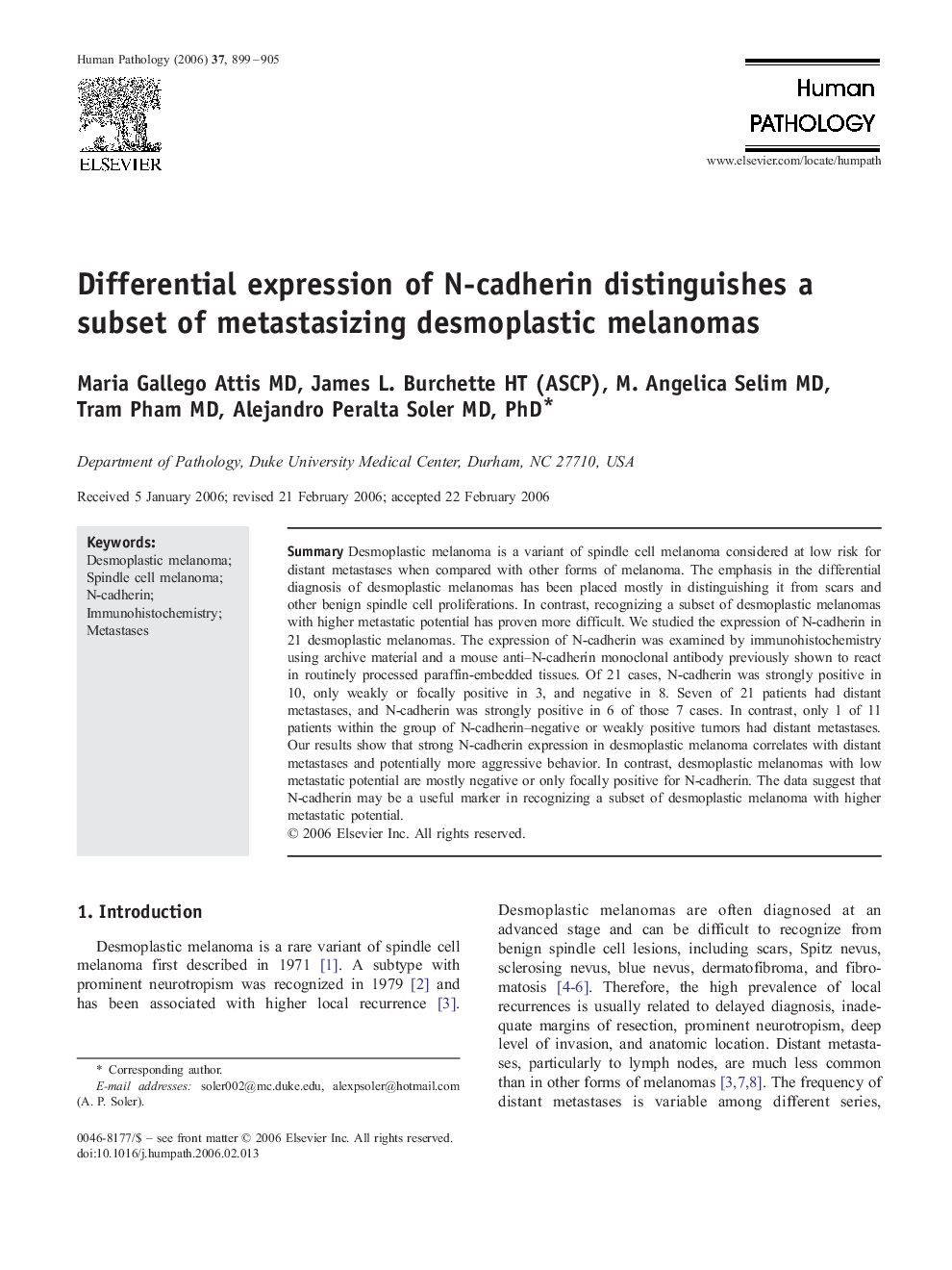| Article ID | Journal | Published Year | Pages | File Type |
|---|---|---|---|---|
| 4135231 | Human Pathology | 2006 | 7 Pages |
SummaryDesmoplastic melanoma is a variant of spindle cell melanoma considered at low risk for distant metastases when compared with other forms of melanoma. The emphasis in the differential diagnosis of desmoplastic melanomas has been placed mostly in distinguishing it from scars and other benign spindle cell proliferations. In contrast, recognizing a subset of desmoplastic melanomas with higher metastatic potential has proven more difficult. We studied the expression of N-cadherin in 21 desmoplastic melanomas. The expression of N-cadherin was examined by immunohistochemistry using archive material and a mouse anti–N-cadherin monoclonal antibody previously shown to react in routinely processed paraffin-embedded tissues. Of 21 cases, N-cadherin was strongly positive in 10, only weakly or focally positive in 3, and negative in 8. Seven of 21 patients had distant metastases, and N-cadherin was strongly positive in 6 of those 7 cases. In contrast, only 1 of 11 patients within the group of N-cadherin–negative or weakly positive tumors had distant metastases. Our results show that strong N-cadherin expression in desmoplastic melanoma correlates with distant metastases and potentially more aggressive behavior. In contrast, desmoplastic melanomas with low metastatic potential are mostly negative or only focally positive for N-cadherin. The data suggest that N-cadherin may be a useful marker in recognizing a subset of desmoplastic melanoma with higher metastatic potential.
